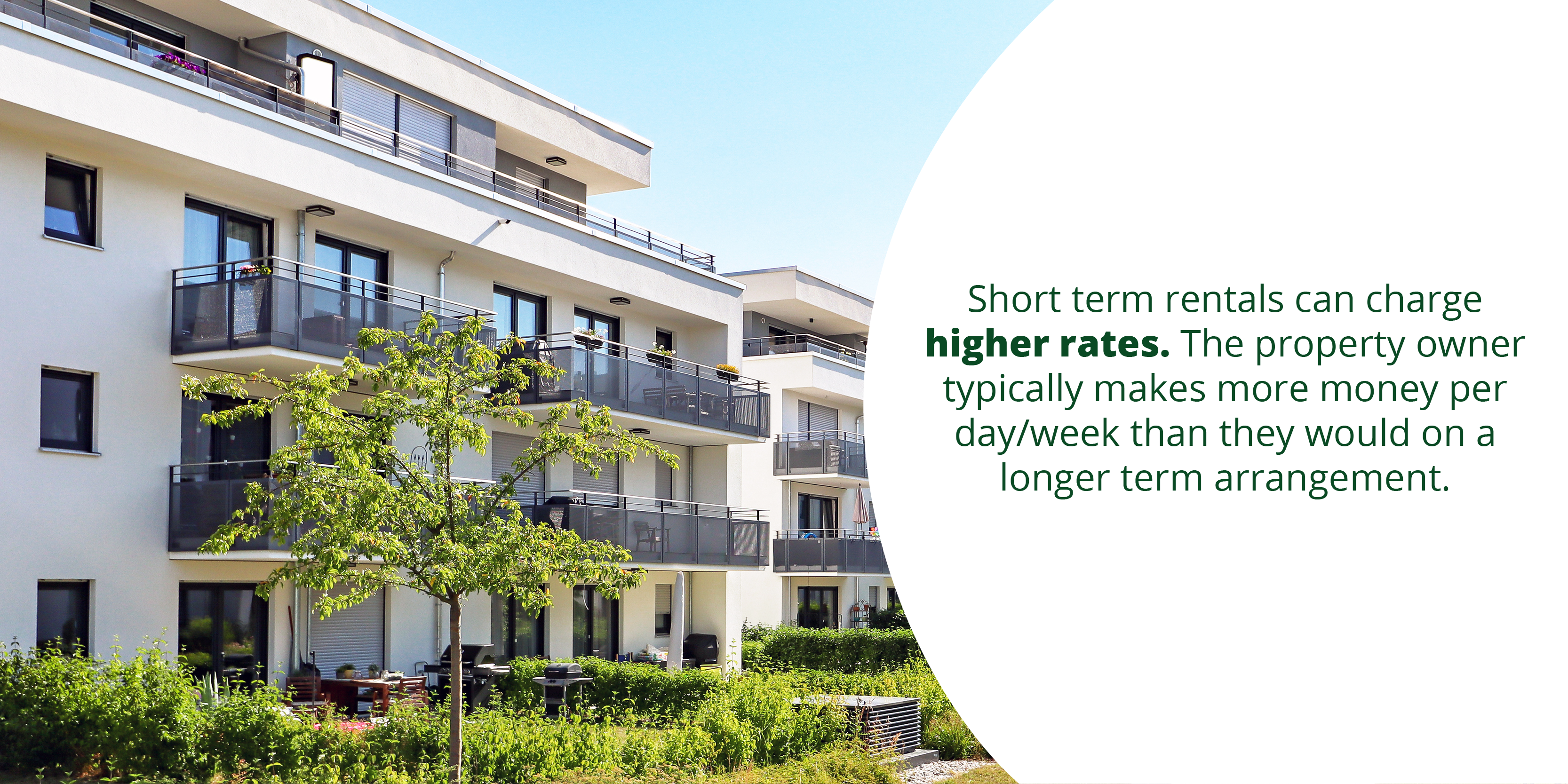Short term rentals have gained popularity due to the rise of companies like AirBNB, Tripping.com, FlipKey, and others. Multi-family properties have long been a staple of residential real estate investment or larger commercial real estate groups where single buildings are built or transformed to accommodate two or more units. When this new real estate trend met a stalwart in the CRE world, the results have been mixed. As we will review today, short term rentals of multi-family properties do offer a lucrative opportunity, but one that comes with a number of practical, legal, and financial risks.
With all of this in mind, we will be discussing the potential benefits of multi-family real estate investment, the potential benefit of short term rental agreements, and the pros and cons of combining these two concepts into a real estate management/investment plan.
Potential Benefits of Multi-Family Real Estate Investment
Multi-family real estate investment is well-known for paying solid dividends for investors. This has remained true for decades, centuries, and even beyond. There are three primary reasons why multi-family real estate investment remains appealing in 2020 and beyond:
- Multi-family properties are easier to finance. According to investopedia.com: “In most cases, if not all, the cost to acquire an apartment building will be significantly higher than the cost to purchase a single-family home as an investment. A one-unit rental could cost an investor as little as $30,000 while the cost of a multi-family building can go well up in the millions.” The benefit? Multi-family units generate far greater returns on those investments with more regular and stronger cash flow. This means that lenders are more willing to provide larger loans for superior terms for multi-family financing agreements.
- Multi-family investment is more efficient. Those in the commercial real estate market will understand that purchasing and renting 50 individual homes is far less efficient than building a portfolio of 50 rental units in one or two multi-family apartment complexes.
- Managing multi-family properties is more practical and cost-effective. Continuing the idea of efficiency, paying a small staff to manage an apartment complex is far more viable than a staff responsible for properties spread out all over town.
Potential Benefits of Short Term Rental Arrangements
Moving on to the other side of the conversation, what are the potential benefits of short term rental agreements? Here are just a few of the reasons why property owners are opting for short term rentals as a money-making operation:
Short term rentals can charge higher rates. This is perhaps the most obvious advantage of short term rentals. While $100 a night for a short term rental might seem reasonable for many areas, $3,000 per month in those same areas almost certainly would not. Rates are adjusted depending on the length of the rental, but the property owner typically makes more money per day/week than they would on a longer term arrangement.
Short term rentals offer greatly flexibility. The other main advantage of short term rentals is the flexibility offered to both property owners and renters. Consider the construction of a new apartment building. Certain sections/units might be done at odd intervals. Short term agreements allow the property owner to fill those units more quickly and on a more varied timetable.
Pros and Cons of Short Term Rentals for Multi-Family Property Owners
The concepts of multi-family rentals and short term rentals are time-tested. When combined, the results can be quite different. With this in mind, here are some pros and cons of multi-family property owners offering their spaces as short term rentals:
- Con: restrictions on short term rentals for multi-family properties: Cities like Boston have recently implemented strict guidelines on what properties can be leased for short term rentals. CRE properties may be exempt entirely depending on local and state law.
- Pro: closing the gap of vacancies: as mentioned in the previous section, even the largest apartment complexes may go through times of unforeseen occupancies. Short term rentals can be used as either a long term strategy or a stop-gap solution to keep cash flow coming in.
- Con: short term rentals for multi-family properties can harm cash flow: on the other hand, one of the main benefits of multi-family properties (regular, reliable cash flow) is directly negated by short term rental arrangements.
- Pro: short term rentals can always be turned into long term rentals: last but not least, a real estate investor can easily transition a short term rental space into a long term arrangement. In other words, there is minimal risk in trying a short term strategy for a short period of time.
Going Forward
Short term rental agreements aren’t going anywhere any time soon. Whether or not these types of arrangements will take a major market share of apartment complexes and other multi-family home units remains to be seen. It seems likely that governmental restrictions on short term rental agreements will continue to become more restrictive in coming years, which might also impact the viability of short term rentals moving forward. For now, CRE investors would be wise to consider all of their options when leasing their properties.




